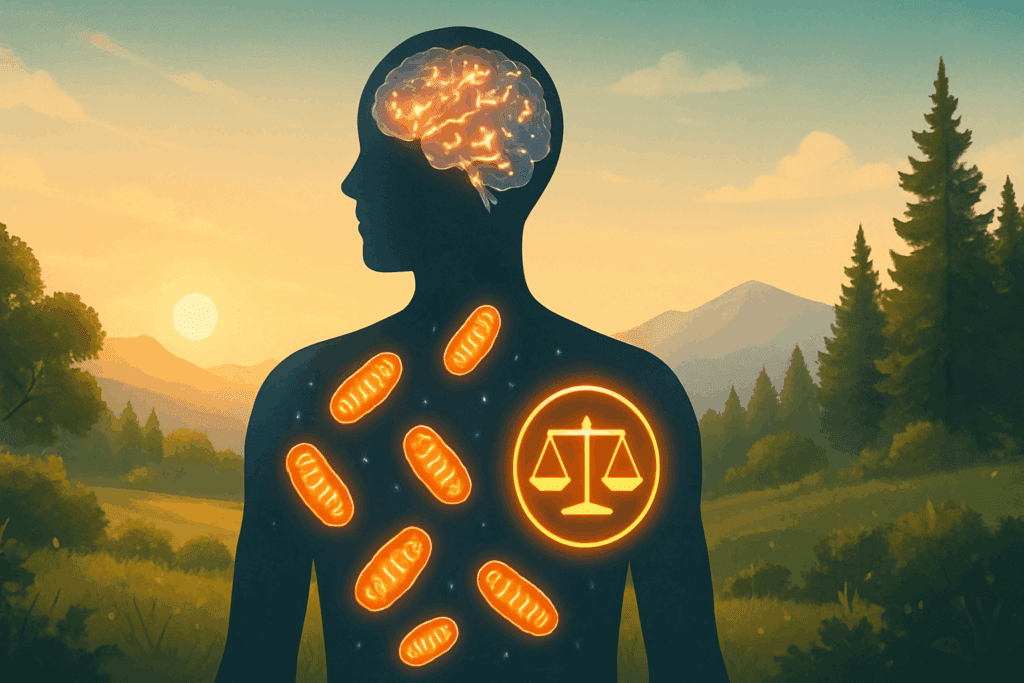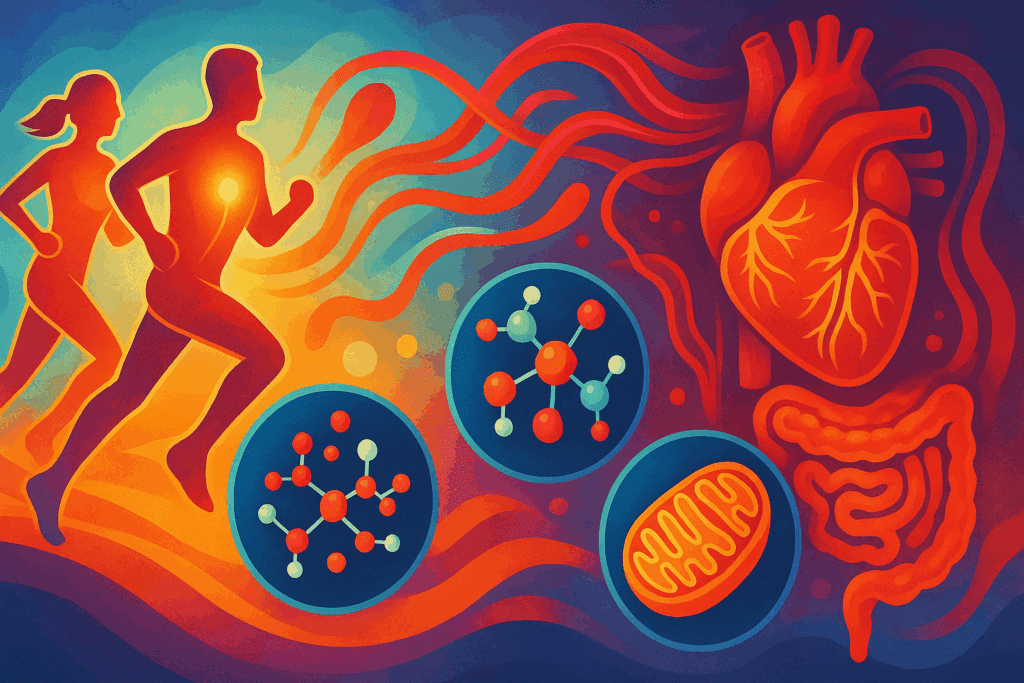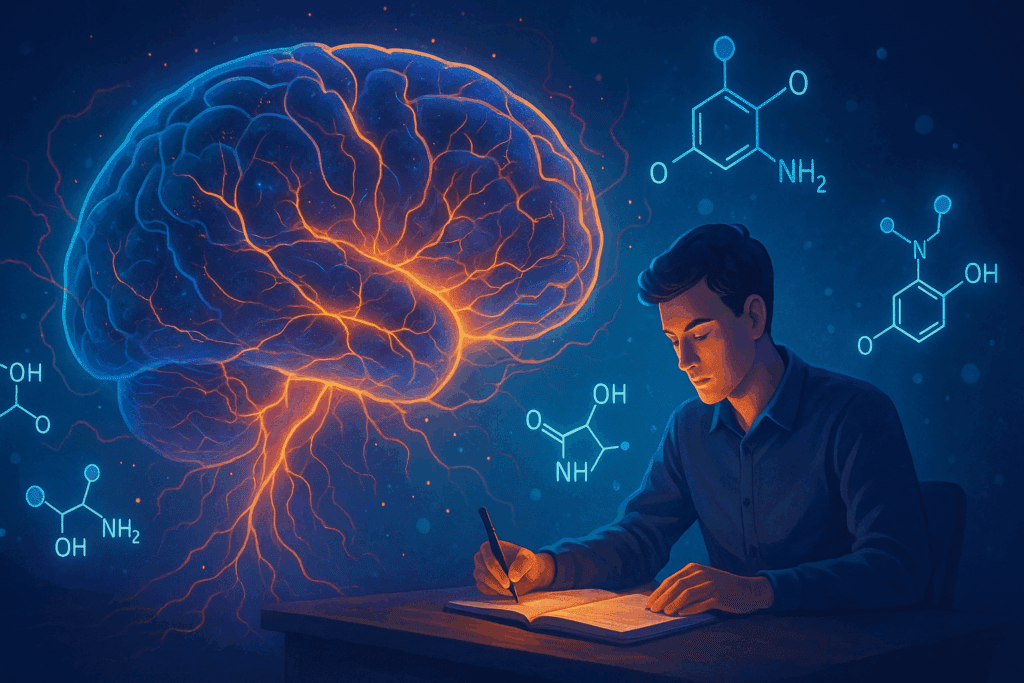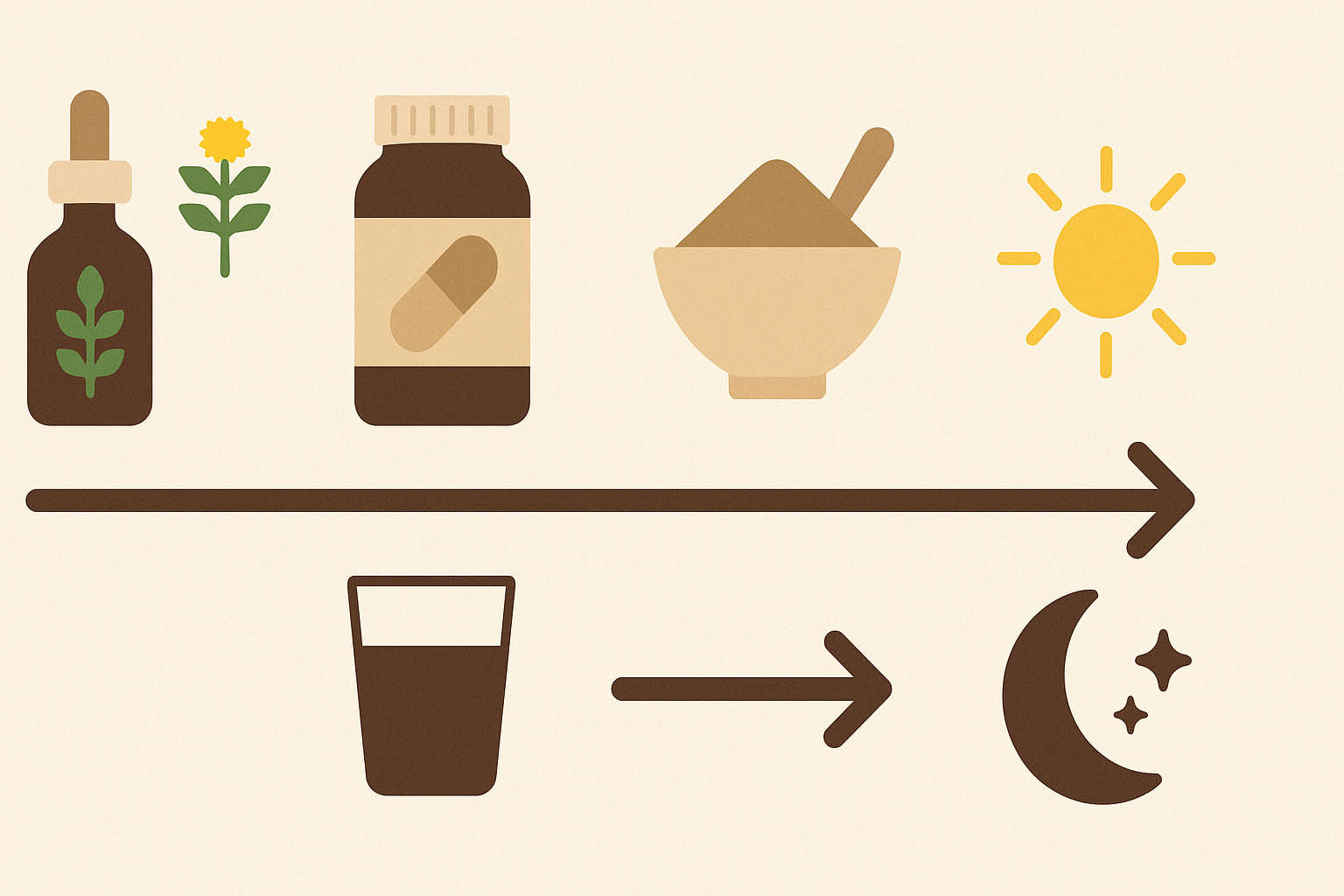Rhodiola rosea, often referred to as Arctic root or golden root, is a powerful adaptogenic herb that has drawn increasing interest in the fields of integrative medicine and evidence-based nutritional neuroscience. With centuries of traditional use in regions such as Russia, Scandinavia, and China, rhodiola rosea has been prized for its capacity to enhance mental clarity, physical stamina, and emotional resilience. Today, modern science is beginning to catch up with ancient wisdom, revealing compelling evidence for its role in supporting cognitive performance, reducing fatigue, modulating stress, and promoting healthy aging. As the nootropic and longevity supplement space continues to grow, understanding what rhodiola rosea is good for—and how to safely and effectively incorporate it—is more important than ever for consumers, clinicians, and health-conscious individuals alike.
You may also like : Best Rated Nootropics for Brain Health: Top Supplements to Enhance Focus, Memory, and Longevity

Understanding What Rhodiola Rosea Does in the Body
To understand what rhodiola rosea does, one must first appreciate its adaptogenic nature. Adaptogens are substances that help the body adapt to stressors, whether physical, emotional, or environmental, without pushing the body out of balance. Rhodiola rosea appears to influence several systems at once, particularly those tied to the hypothalamic-pituitary-adrenal (HPA) axis, which governs the stress response. By modulating cortisol levels and supporting mitochondrial energy production, rhodiola rosea promotes a more resilient physiological state. It also seems to support key neurotransmitters like serotonin, dopamine, and norepinephrine, which are essential for mood, motivation, and cognitive function.
Scientific studies have demonstrated rhodiola rosea’s ability to enhance mental performance during periods of fatigue and stress. For example, clinical trials have shown improved memory, attention, and task performance in individuals subjected to prolonged mental effort or sleep deprivation. These effects may be due in part to the herb’s salidroside and rosavin content, bioactive compounds thought to underlie many of its benefits. Consequently, rhodiola rosea supplements have become especially popular among students, professionals, and biohackers seeking to sharpen focus and sustain productivity without overstimulation.

The Broad Spectrum of Rhodiola Rosea Benefits
Among the most widely appreciated rhodiola benefits is its ability to reduce fatigue. Chronic stress, poor sleep, and high cognitive demand can deplete physical and mental energy, but rhodiola rosea offers a unique solution by addressing both the psychological and physiological aspects of fatigue. Clinical studies have documented significant improvements in energy levels, reaction time, and subjective well-being following rhodiola supplementation, even in individuals with stress-related burnout.
Rhodiola rosea benefits also extend to mood regulation and emotional stability. Several trials suggest that it may help reduce symptoms of mild to moderate depression and anxiety, likely due to its effect on monoamine neurotransmitter levels and its mild inhibitory action on the enzyme monoamine oxidase (MAO). While it is not a replacement for prescription antidepressants, many people report that rhodiola rosea changed my life by offering a gentle but noticeable lift in mood and emotional resilience. This makes it particularly appealing to those seeking natural alternatives to pharmaceutical interventions.
From a longevity perspective, rhodiola rosea offers intriguing potential. Animal studies suggest that it may reduce oxidative stress and modulate pathways involved in cellular aging, such as those governed by AMP-activated protein kinase (AMPK). These findings have prompted interest in rhodiola rosea as an anti-aging agent that could support mitochondrial health, DNA repair, and cellular regeneration. Although more research is needed in human populations, preliminary results are promising and support its inclusion in nootropic stacks and longevity protocols.
The Role of Rhodiola in Mental Resilience and Post-Traumatic Recovery
A particularly compelling area of rhodiola research is its application in mental resilience and trauma recovery. Some early-stage clinical studies and case reports suggest rhodiola rosea may be beneficial in post-traumatic stress disorder (PTSD) and related conditions due to its ability to reduce stress reactivity, support neuroplasticity, and modulate the neuroendocrine response to trauma cues. These properties are consistent with adaptogens’ traditional use in promoting spiritual and emotional balance.
In this context, rhodiola may serve as a supportive tool during therapy or recovery periods, enhancing the body’s capacity to process and integrate stressful or traumatic experiences. It may also buffer against burnout in high-risk professions such as healthcare, emergency response, and military service. The phrase “rhodiola rosea changed my life” is often echoed in testimonials from individuals who have faced intense psychological adversity and found renewed clarity, energy, and purpose with consistent supplementation.

Rhodiola Rosea and Metabolic Health
Emerging research suggests rhodiola rosea may exert beneficial effects on metabolic health, particularly through its influence on AMPK (AMP-activated protein kinase), an energy-sensing enzyme crucial for cellular metabolism. AMPK activation promotes fatty acid oxidation, glucose uptake, and mitochondrial biogenesis—all of which are foundational to metabolic efficiency and insulin sensitivity. Several animal studies have demonstrated rhodiola rosea’s ability to improve glucose metabolism and reduce weight gain in high-fat diet models, indicating potential in managing prediabetes and metabolic syndrome.
In addition to blood sugar regulation, rhodiola’s adaptogenic properties help counteract the metabolic disruption caused by chronic stress. Elevated cortisol levels, when sustained over time, contribute to abdominal fat accumulation and impaired glucose control. By modulating cortisol secretion and enhancing stress resilience, rhodiola rosea indirectly supports weight regulation and insulin balance. While human data remains limited, early findings are promising and point to the need for clinical trials exploring its full role in metabolic optimization.

Cognitive Enhancement and Nootropic Applications
When it comes to cognitive enhancement, rhodiola rosea is often considered one of the best natural options available. It supports multiple cognitive domains, including memory, focus, processing speed, and executive function, particularly under conditions of stress or fatigue. For individuals looking for non-stimulant-based nootropics, rhodiola rosea supplements provide a viable and well-tolerated solution that does not carry the side effect burden of synthetic stimulants.
A growing body of research supports the role of rhodiola root powder and standardized extracts in enhancing academic and professional performance. In controlled trials, participants who took rhodiola exhibited improved ability to stay on task, reduced error rates, and greater subjective alertness compared to placebo. The effects tend to be most pronounced in the context of mental or emotional stress, suggesting that the herb’s benefits may be partly due to its ability to blunt the negative impact of cortisol and restore neurochemical balance.
One emerging product gaining attention in this space is berg rose rhodiola rosea extract. This specialized form of rhodiola claims to offer a higher concentration of active constituents while maintaining purity and standardization. Advocates suggest that berg rose rhodiola rosea delivers more consistent results and better bioavailability, although head-to-head trials comparing it to traditional extracts remain limited.

Dosage, Timing, and Supplement Formats
Determining how much rhodiola should I take depends on several factors, including the individual’s health status, goals, and the specific product used. Most clinical studies use doses ranging from 200 to 600 mg per day of standardized extract, typically containing 3% rosavins and 1% salidroside. It is important to start on the lower end of the range, especially for those new to adaptogens, and gradually increase as needed. Because of its mild stimulating effects, many experts recommend taking rhodiola rosea in the morning or early afternoon to avoid potential interference with sleep.
Understanding when to take rhodiola is essential for maximizing its benefits. Morning use may help with alertness, focus, and energy, particularly on demanding days or during periods of sleep deprivation. Some users also find benefit from taking it before a workout or public speaking event to enhance performance and manage performance-related stress. While rhodiola rosea does not typically make users sleepy, its ability to reduce stress-related agitation can sometimes produce a calming effect.
Supplement forms vary widely, ranging from rhodiola root tincture and capsules to powders and teas. Tinctures offer rapid absorption and are ideal for users who prefer flexible dosing. Capsules, especially those made with standardized extracts, are generally more convenient and ensure consistent intake. Rhodiola root powder can be added to smoothies or drinks, though its bitter taste may be off-putting to some. As with all botanicals, quality and source matter greatly; not all supplements are created equal, and products lacking standardization may yield inconsistent results.

Rhodiola Rosea Side Effects and Safety Considerations
For most individuals, rhodiola rosea is considered safe and well-tolerated. However, like any bioactive compound, it may cause side effects in some users. Reported rhodiola side effects include dizziness, dry mouth, irritability, or gastrointestinal discomfort. These effects are usually mild and transient, often resolving with dosage adjustment or temporary discontinuation. Individuals who are sensitive to stimulants may be more prone to such effects and should monitor their response carefully.
While there is growing interest in using rhodiola rosea during pregnancy, available data remain limited and inconclusive. As a precaution, most healthcare professionals recommend avoiding rhodiola rosea in pregnancy until more robust safety data become available. Similarly, individuals with bipolar disorder or those taking antidepressants should consult with a healthcare provider before starting rhodiola, as it may affect mood stability or interact with medications. Questions such as “is rhodiola safe during pregnancy” or “is rhodiola safe for long-term use” should be addressed on a case-by-case basis with clinical guidance.
It is also important to recognize that rosea root side effects may vary depending on the form and quality of the supplement. Products that are poorly standardized or contain adulterants may carry a greater risk of adverse effects. To ensure both safety and effectiveness, consumers should choose products that are third-party tested and manufactured according to Good Manufacturing Practices (GMP). Reading product labels carefully and consulting healthcare providers before beginning supplementation can further minimize risk.

Support for Immune Function and Inflammation
Beyond its cognitive and physical applications, rhodiola rosea also demonstrates immunomodulatory effects. In both animal and in vitro models, extracts of rhodiola rosea have been shown to increase the activity of natural killer (NK) cells and macrophages—two essential components of the innate immune system. These findings suggest that rhodiola may help the body mount more effective responses to pathogens, especially during periods of physical or psychological stress when immune function tends to decline.
One of the more intriguing aspects of rhodiola’s influence on immunity is its capacity to regulate inflammatory signaling pathways. Chronic low-grade inflammation has been implicated in numerous age-related diseases, including cardiovascular disease, neurodegeneration, and autoimmune conditions. Compounds such as salidroside have been shown to inhibit NF-kB, a transcription factor that plays a central role in inflammation. By modulating this pathway, rhodiola rosea may provide broad-spectrum support against inflammatory imbalances.
Interestingly, some herbalists also advocate for rhodiola’s use in managing seasonal immune suppression, such as during the winter months when vitamin D levels drop and respiratory infections rise. While more data is needed to confirm this application, its adaptogenic profile and influence on immune biomarkers make it a compelling candidate for future research in infectious disease resilience.
Hormonal Modulation and Endocrine Balance
Hormonal balance is another area where rhodiola rosea shows potential, particularly in its effects on the HPA axis and reproductive hormones. While it does not act as a direct phytoestrogen like some botanicals (e.g., black cohosh or red clover), rhodiola appears to influence sex hormone levels by regulating upstream endocrine function. In women, especially those experiencing perimenopausal symptoms or cycle-related mood disturbances, rhodiola rosea may help stabilize hormone-related emotional swings by mitigating cortisol surges and supporting serotonin production.
There is also growing interest in rhodiola rosea for male reproductive health. Animal studies have reported increased testosterone levels and improved sperm motility following rhodiola supplementation, though human studies are sparse. Given the stress-reducing effect of the herb and the well-documented inverse relationship between chronic stress and testosterone, it is biologically plausible that rhodiola may support hormonal resilience in men, particularly those experiencing age-related declines.
These endocrine effects are further supported by rhodiola’s influence on thyroid function. While not a thyroid-stimulating herb per se, it may help regulate thyroid hormones indirectly by reducing cortisol-induced inhibition of T3 conversion. Individuals with stress-induced subclinical hypothyroidism may find rhodiola rosea useful as part of a broader strategy for adrenal and thyroid support, though clinical supervision is advised.
How Long Does Rhodiola Rosea Take to Work?
The timeline for experiencing rhodiola rosea benefits can vary significantly between individuals. Some users report noticeable effects within hours of the first dose, particularly in terms of alertness and mood. However, more substantial benefits—such as enhanced cognitive performance, stress resilience, and fatigue reduction—typically become more apparent after one to two weeks of consistent use. For long-term outcomes such as improved mitochondrial function or cellular aging biomarkers, effects may take several weeks or even months to manifest.
Clinical evidence supports this gradual onset. In studies examining rhodiola’s impact on stress, fatigue, and depression, participants often reported the greatest improvements after 14 to 28 days of daily supplementation. These findings highlight the importance of patience and consistency. Rhodiola is not a quick fix but rather a tonic that builds adaptive capacity over time. When combined with other healthy lifestyle practices—such as regular exercise, nutrient-dense eating, and sufficient sleep—it can significantly contribute to mental clarity and longevity.
What to Look for in the Rhodiola Rosea Best Supplement
Choosing the rhodiola rosea best supplement requires discernment and attention to detail. Ideally, supplements should be standardized to contain a specific ratio of rosavins and salidroside, as these are the primary active compounds linked to its adaptogenic effects. A common and evidence-backed ratio is 3% rosavins to 1% salidroside. Products that specify this standardization—and are backed by independent lab testing—are generally more reliable and effective.
Form also matters. While rhodiola root tincture may offer fast absorption, standardized capsules or tablets tend to be more convenient for consistent daily use. When evaluating supplements, consider the company’s reputation, transparency, and manufacturing practices. Avoid products with proprietary blends that obscure ingredient dosages, as this makes it difficult to assess potency and safety. The presence of third-party certifications, such as NSF, USP, or ConsumerLab approval, is an additional indicator of quality.
The emergence of berg rose rhodiola rosea extracts adds another layer of choice for discerning consumers. While still relatively new, these extracts aim to deliver high potency and bioavailability, potentially allowing for lower dosages and quicker effects. If selecting this type of supplement, ensure that the brand provides detailed information on extraction methods and active constituent concentrations. Ultimately, the best supplement is one that combines efficacy, safety, and transparency in a form that suits the user’s individual preferences and goals.
Frequently Asked Questions About Rhodiola Rosea
1. Can Rhodiola Rosea Help With Creative Performance and Mental Flexibility?
Yes, rhodiola rosea may benefit cognitive processes linked to creativity and mental agility, particularly during high-pressure scenarios such as deadlines or public speaking. By reducing stress-induced cognitive rigidity and enhancing dopaminergic signaling, it may help users enter a more flexible mental state conducive to idea generation and problem-solving. Unlike synthetic stimulants that may produce a narrow focus, rhodiola rosea supports balanced neurotransmission, allowing the brain to switch more fluidly between divergent and convergent thinking tasks. Creative professionals, designers, and writers have reported that rhodiola rosea changed my life by restoring mental fluidity without the crash or overstimulation associated with caffeine. These benefits may be even more pronounced when combining a rhodiola rosea supplement with mindful movement practices like yoga or walking.
2. What Role Does Rhodiola Play in Supporting People with Irregular Work Hours or Shift Work?
Individuals working night shifts or alternating schedules often experience circadian disruption and chronic fatigue. Rhodiola rosea benefits this population by helping stabilize energy levels and reduce the mental fog caused by irregular sleep-wake cycles. Its adaptogenic properties are especially relevant when taken strategically—knowing when to take rhodiola rosea can make a measurable difference in managing daytime alertness and nighttime recovery. Studies suggest that adaptogens like rhodiola may help reset disrupted biological rhythms and improve sleep quality indirectly by reducing cortisol imbalances. Shift workers looking for the rhodiola rosea best supplement should choose standardized extracts to ensure consistent efficacy under unpredictable work demands.
3. Is Rhodiola Safe for People Managing Chronic Conditions Like Hypertension or Autoimmune Disorders?
While generally well tolerated, rhodiola rosea side effects may be more relevant for individuals with existing health conditions. People with high blood pressure should be cautious, as rhodiola may have mild stimulating effects that could interact with antihypertensive medications. Similarly, those with autoimmune disorders should consult with a healthcare provider before use, as adaptogens may influence immune signaling pathways. However, many integrative practitioners view rhodiola rosea as a useful adjunct in managing the stress component of these conditions when appropriately dosed. Choosing a reputable rhodiola rosea supplement and starting with a low dose—especially in the form of a rhodiola root tincture—may help monitor individual response more closely.
4. What Is the Difference Between Rhodiola Root Powder and Standardized Extracts?
The distinction between rhodiola root powder and standardized extracts is critical for therapeutic effectiveness. While rhodiola root powder includes the whole plant material and may offer a broader phytochemical spectrum, it lacks consistent concentrations of active constituents like salidroside and rosavin. In contrast, a high-quality rhodiola rosea supplement using standardized extract ensures predictable potency and better replicability of clinical outcomes. This is especially important when targeting specific outcomes such as enhanced focus or stress resilience. Those seeking the rhodiola rosea best supplement for measurable cognitive support may prefer products with a 3:1 ratio of rosavins to salidroside, commonly found in berg rose rhodiola rosea extract formulations.
5. Does Rhodiola Make You Sleepy or Alert? How Should You Time Your Doses?
One of the most frequently asked questions is: does rhodiola make you sleepy or alert? The answer is nuanced—it does not sedate in the traditional sense but rather supports an adaptive state that can promote calm when needed and energy when required. For this reason, the best results often come from timing doses to align with your daily rhythm. Morning use may enhance focus and motivation, while early afternoon dosing may reduce post-lunch fatigue without impairing evening relaxation. When considering when to take rhodiola, it’s also important to account for caffeine intake or stimulant medications, as combining them may amplify effects. Users who are overly sensitive to stimulants may prefer a lower dose or opt for a rhodiola root tincture for more flexible, titratable administration.
6. What Does Rhodiola Extract Do That Other Adaptogens Don’t?
What does rhodiola extract do that sets it apart from other adaptogens like ashwagandha or eleuthero? One key differentiator is its dual effect on both mental performance and physical endurance, making it especially popular among students, entrepreneurs, and athletes. Rhodiola rosea benefits include enhancing mitochondrial efficiency, oxygen utilization, and cognitive agility under stress, which few adaptogens target simultaneously. Furthermore, rhodiola’s effects tend to be more immediate compared to other herbs that require weeks of buildup. Some users also report emotional breakthroughs with statements like “rhodiola rosea changed my life,” highlighting its impact not just on stress reduction but also on motivation and emotional renewal. Berg rose rhodiola rosea is particularly praised for this dual-action potency.
7. How Much Rhodiola Should I Take to Notice an Effect, and How Long Does It Take to Work?
The question of how much rhodiola per day is needed depends on the extract type and user sensitivity. Standardized extracts in the 200–400 mg daily range are often sufficient, especially when the product is high quality. Some people may feel effects within hours—particularly in terms of alertness or mood—but more comprehensive rhodiola rosea benefits generally emerge after one to two weeks of consistent use. If you’re wondering how long does rhodiola rosea take to work for fatigue or cognitive issues, clinical studies suggest peak benefits often appear by week four. That said, response can be highly individual, so tracking changes in energy, focus, or mood may help determine if adjustments in dosage or timing are needed.
8. Is Rhodiola Rosea Safe During Pregnancy or for Women Trying to Conceive?
The question “is rhodiola rosea safe during pregnancy” warrants a cautious response. Current evidence on rhodiola pregnancy safety is limited, and most health authorities advise against its use during pregnancy and breastfeeding due to a lack of human studies. While animal models have not demonstrated overt toxicity, the influence of adaptogens on hormonal and stress pathways could theoretically impact fetal development. Likewise, rhodiola rosea in pregnancy may interfere with implantation or ovulatory cycles in sensitive individuals. Women trying to conceive should consult with a fertility-specialized integrative provider before taking any rhodiola rosea supplement, especially if they are already using hormone-regulating medications or herbs.
9. Can Rhodiola Help People Recover from Burnout or Career Fatigue?
Burnout recovery is one of the lesser-discussed areas where rhodiola rosea may truly shine. What does rhodiola do in this context? It supports depleted adrenal function, promotes motivation, and can restore a sense of mental and emotional vitality. Many users in high-stress professions have reported that rhodiola rosea changed my life by helping them rediscover a sense of purpose after years of fatigue and disconnection. Its ability to improve neurotransmitter balance without overstimulation makes it suitable for long-term use, particularly when burnout has emotional as well as physical roots. Choosing a rhodiola rosea supplement in the form of berg rose rhodiola rosea extract may further enhance these effects, thanks to its consistent pharmacological profile.
10. Are There Risks Associated with Long-Term Use or Specific Rosea Root Side Effects?
Although generally well tolerated, long-term use of rhodiola rosea is not without potential concerns. Some users may experience mild rhodiola side effects such as jitteriness, vivid dreams, or gastrointestinal upset—especially at higher doses. Rosea root side effects may also vary depending on the supplement’s purity and manufacturing quality. To minimize risk, it’s best to cycle usage—taking breaks every few months—and to avoid using it late in the day if it disrupts sleep. Choosing the rhodiola rosea best supplement involves not only ingredient quality but also third-party testing, GMP compliance, and clear labeling of rosavin and salidroside content. With thoughtful selection and mindful usage, most individuals can safely enjoy long-term rhodiola rosea benefits without complications.
Conclusion: What Is Rhodiola Rosea Good For in Brain and Longevity Health?
Rhodiola rosea stands out among adaptogens for its unique ability to support both immediate cognitive performance and long-term vitality. Whether one is seeking sharper mental focus, greater emotional resilience, or enhanced endurance under stress, this powerful herb offers a compelling solution grounded in both tradition and modern science. By influencing neurotransmitters, cortisol levels, and cellular energy pathways, rhodiola rosea supports a broad spectrum of physiological processes that contribute to brain health and healthy aging.
As more individuals seek natural, research-backed ways to enhance quality of life, rhodiola rosea supplements are finding a place in everyday wellness routines. However, optimal benefits come from understanding how much rhodiola per day is appropriate, when to take rhodiola rosea, and what type of extract offers the best results. Attention to quality, dosage, and personal response can help users navigate the growing supplement market and select the rhodiola rosea best supplement for their needs.
Ultimately, the question of what is rhodiola rosea good for is best answered not in narrow terms, but with appreciation for its multifaceted nature. From managing stress to supporting cellular longevity, rhodiola rosea provides a versatile and well-rounded option for those committed to sustaining peak mental and physical performance across the lifespan. With informed use and careful selection, this ancient root may indeed be a key player in the future of cognitive enhancement and healthy aging.
Further Reading:
Rhodiola – Uses, Side Effects, and More


